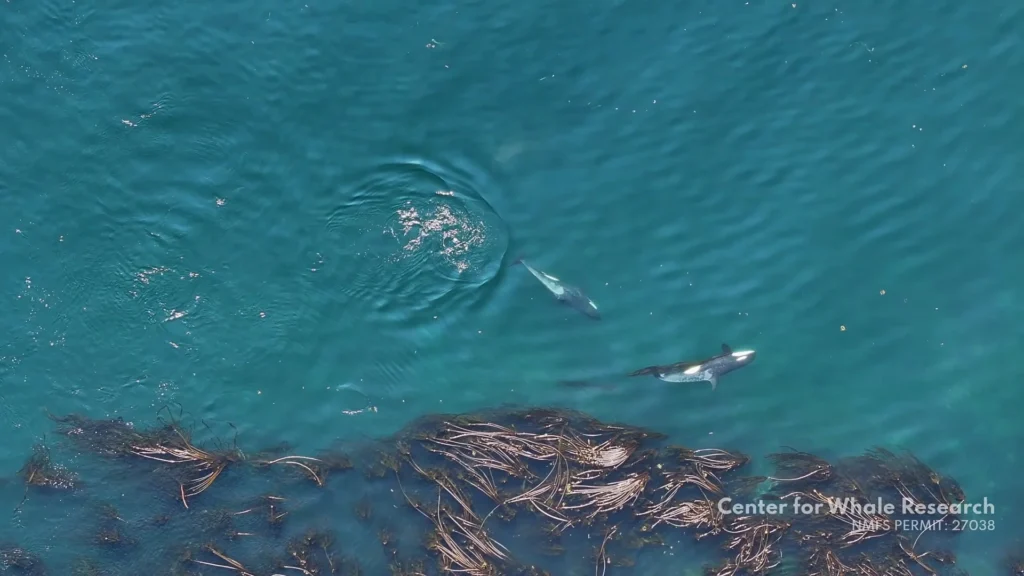Orcas Engage in Unprecedented Tool Use for Social Grooming
In a groundbreaking discovery, researchers have observed Southern Resident killer whales engaging in a remarkable behavior: using kelp for mutual grooming. This astonishing revelation sheds light on the complex social interactions of these marine mammals and their potential cultural practices.
Image Credit: Center for Whale Research, NMFS NOAA Permit 27038.
The Discovery of "Allokelping"
The phenomenon, termed allokelping, was uncovered by Michael Weiss from the Centre for Whale Research while analyzing drone footage. In this footage, orcas are seen clutching kelp stalks in their mouths before using them to rub against one another—a behavior resembling a back massage among friends.
Key Observations
- Behavioral Context: This grooming act is not merely playful; it signifies a deeper layer of social interaction among these whales.
- Species Specific: The behavior has predominantly been observed in a small group of 73 Southern Resident killer whales, residing year-round in the Salish Sea, a coastal area between Washington State and British Columbia.
Over several months, researchers documented 30 instances of allokelping, where a two-foot-long stipe from bull kelp was used by an orca to caress another whale’s body.
“Let’s call it a kelp massage,” explained Prof Darren Croft, emphasizing the deliberate nature of this interaction.
Tool Use in Marine Mammals
The use of tools among animals signifies a level of cognitive intelligence not commonly observed in marine environments. While land animals like chimpanzees and elephants exhibit tool use, it’s rare for marine mammals due to the challenges posed by their aquatic habitat.
Unique Features of Allokelping
- Preparation: Orcas grasp kelp and manipulate it through precise movements.
- Mutual Interaction: All age groups within the pod participate, suggesting it is a learned behavior.
- Selection and Intent: The careful selection of kelp indicates a shared understanding and purpose behind its use.
Cultural Implications
The significance of allokelping extends beyond mere grooming. Scientists are exploring whether this behavior could reflect a cultural trait unique to the Southern Resident population, akin to regional dialects found in birdsong.
Next Steps for Research
- Investigating similar behaviors in other orca populations.
- Assessing the impact of environmental changes, as the Southern Residents are critically endangered due to factors like pollution and dwindling salmon populations.
Conservation Concerns
The beauty of allokelping is cast against a backdrop of urgency. The Southern Resident killer whales face severe threats that jeopardize their survival, including:
- Declining Food Sources: The population of chinook salmon, their primary prey, has significantly declined.
- Habitat Loss: Kelp forests, crucial for their grooming rituals, are also threatened by rising ocean temperatures attributable to climate change.
The Call for Action
The findings about allokelping emphasize the need for immediate conservation efforts. The complex behaviors observed in these orcas are intertwined with their cultural heritage, making it essential to protect their habitat and resources.
Conclusion
The observation of orcas employing kelp as a grooming tool highlights advanced social behaviors and warrants further investigation. As researchers delve into these new insights, they also stress the urgency of protecting these intelligent creatures and their environment for future generations.
For more on maritime wildlife behaviors and conservation efforts, delve into the latest research and updates from acclaimed marine research institutes.


